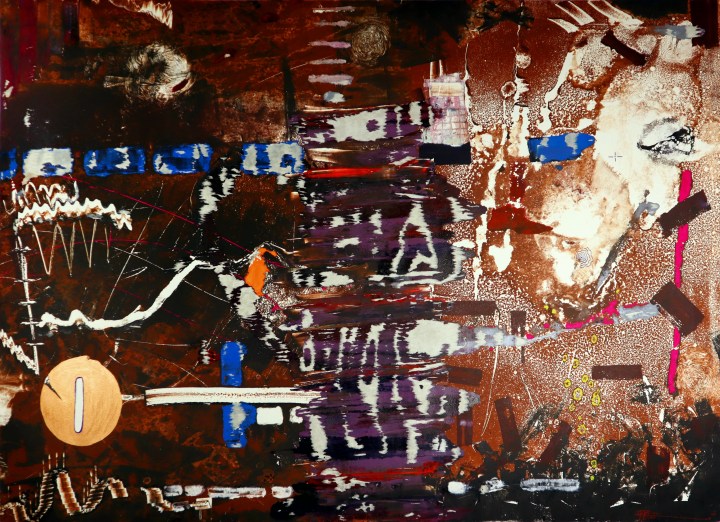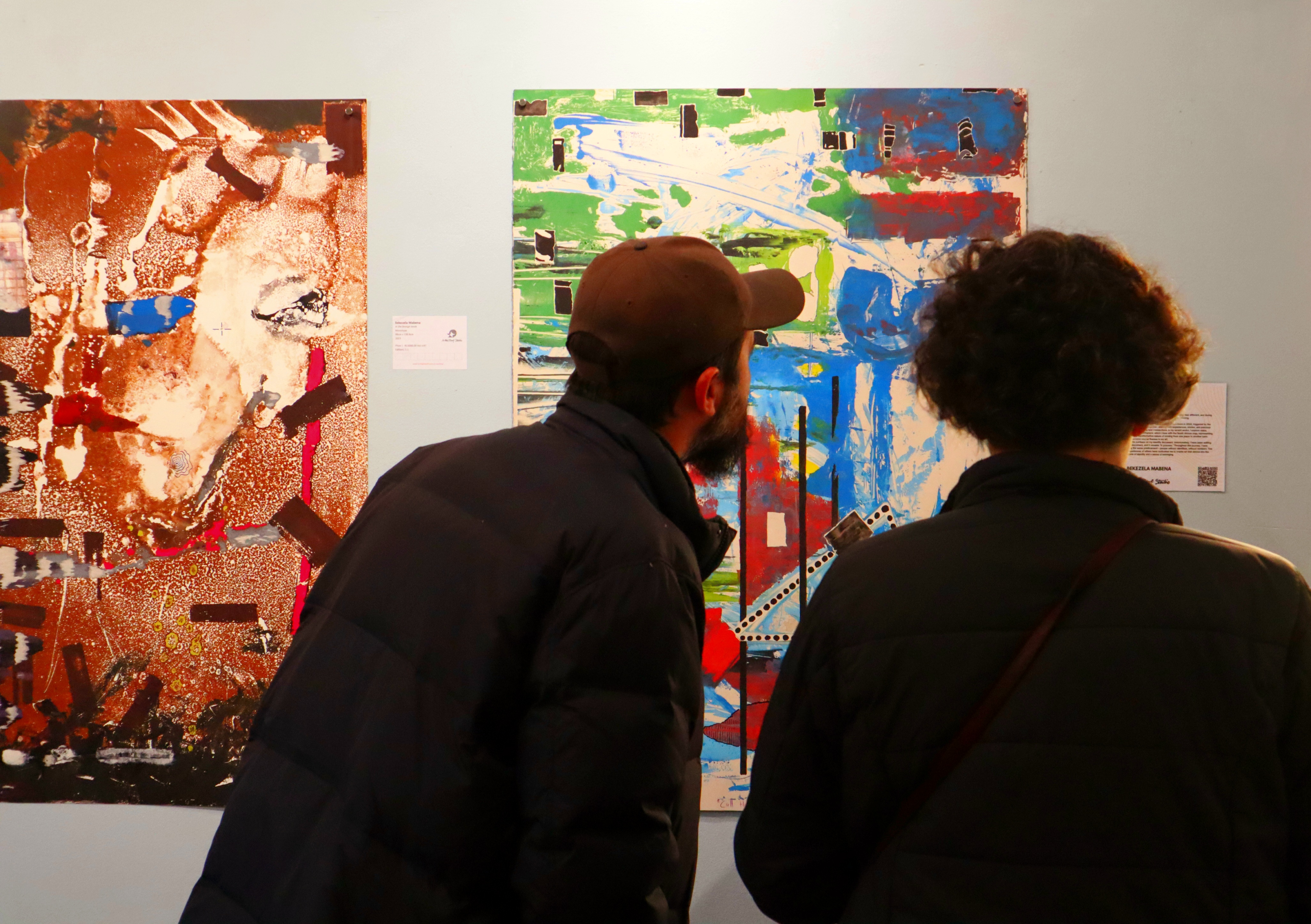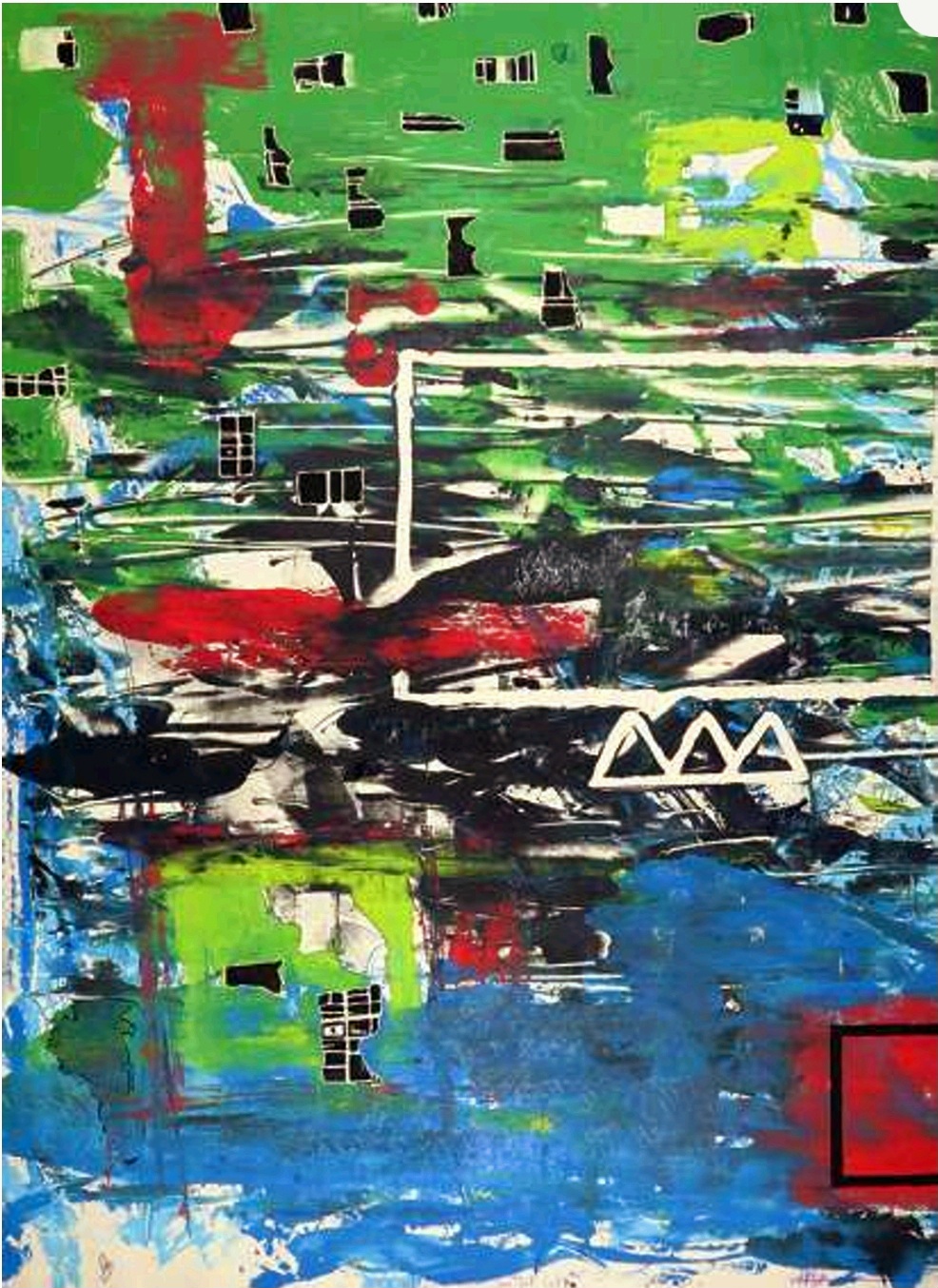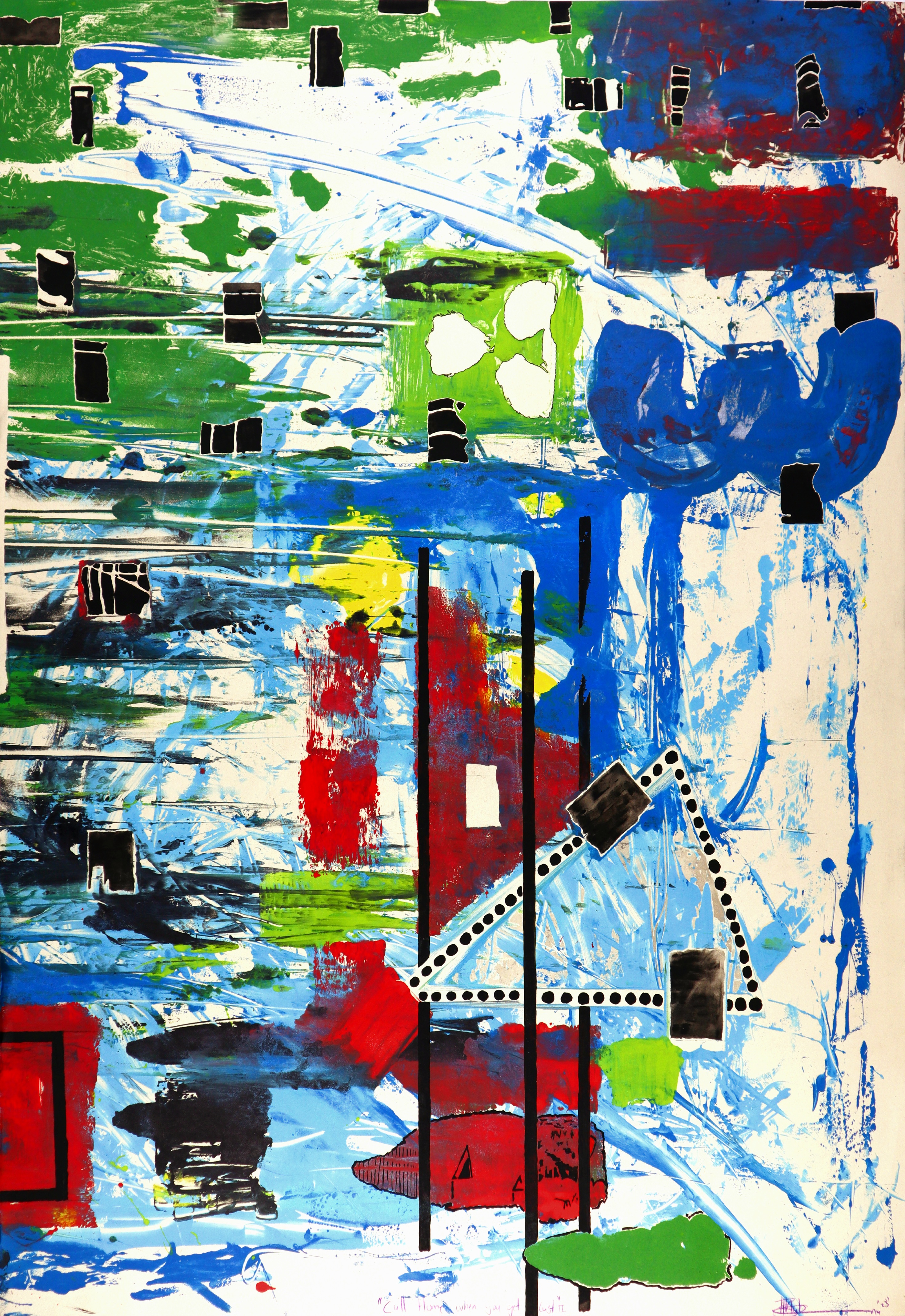MATTERS OF THE ART
On being an artist in the city – the unseen narratives of Johannesburg

‘Aftermath,’ an exhibition presented by Joburg’s Artist Proof Studio, delves into the social fabric that shapes the lives of the city’s inhabitants, through the lens of emerging African artists.
Joburg feels endless. There is so much noise, so much to do while we are so young and carefree. It is easy to feed off its energy. From the proliferation of graffiti we experience when we are in a car that goes under a bridge, which charms us with the raw talent it shows, to the street vendors who sell either mangwinya on a cold winter morning or seshweshwe attire for weddings on the long weekends back home, to the office spaces where we make our mark, whose corners have witnessed the brightest streetlights and the wildest street fights.
Aftermath: Exploring the Unseen Narratives is a group exhibition that invites us to deeply reflect on the journeys we walk in the everyday hustle and bustle against the city’s glorious backdrop. As one walks from one room to another inside the Houghton Estate office space where the exhibition is staged, the alumni artists of Artist Proof Studio offer fragments of personhood and neighbourhood that are shaped by life in this city. The graduates from this famous inner-city printing studio that offers an art education in this medium, whose work is on show include Ben Mphande, Betinho Mokwane, Hlavutelo Ngobeni, Samukelo Gqola, Thabo Skhosana, Tshogofatso Nkhumeleng, Seza Zitha, and Bekezela Mabena.
Ngobeni reminds us that we carry our original homes with us in the many buildings we enter, and we should take pride in our heritage as we grace those who pay us attention. At times we are fish out of water, forever finding our own places, reconfiguring ourselves within the city’s dynamics, and hoping for a better tomorrow in Mphande’s dystopian take on the current social and physical environment. Other times we came here chasing the gold beneath the Earth and stayed for the character of the towers above our heads. The layering of Mokwane’s printing process draws attention to the depths of our dreams and encounters.

Viewing Bekezela Mabena’s ‘Call home when you get lost II’ (2023). (Photo: Courtesy of Artist Proof Studio)
Mabena, who works out of a rooftop studio at August House, a building full of artist studios in Doornfontein, further emphasises our special relationship with the city through the perspective and practice of journeying.
“My entire life was grounded in travelling and there are traces of that in my work. There are depictions of movement, elements that seem like water flowing from one point to another. Think about the crossing of [a] river, being a border jumper and then a foreigner. Think about the water and how it interacts with identity in that sense. Water is in the paint I apply in my paintings and in the land. We are divided by water, yet water is also used to build societies. People can also have a spiritual relationship with this natural element,” says Mabena.
Referring to a work featured in Aftermath, titled Call Home When You Get Lost, he reflects that “being in this city is being far away from my home and sometimes [I am] reminded that I do not have full access to a place called home. Home is constantly on my mind. Every artist in this show has visualised their journey; stories that are rarely considered, obstacles that have been encountered or mastered, and the aftermaths of life events.”

Bekezela Mabena, ‘Call home when you get lost I’ (2023). (Photo: Courtesy of Artist Proof Studio)
This painting was created to be a two-part story; Call Home When You Get Lost I and II (2023). They take an abstract form, containing shades of blue that trail along the canvas like a body of water. There are scrapings across the green parts that emphasise the character of the cityscape, making one think about how long Jozi has existed, how many times parts of it have been constructed and reconstructed, ruined and renovated. Little black doors and windows are scattered around the image, which “depict the [enclosure factor] that comes with entering and being in a space, and are meant to give you the feeling that there is a whole world underneath the things available for you to see”, he explains.
In one of the rooms at the exhibition venue, the two paintings are bridged by a third called In the Foreign Lands (2023). It is an interesting piece that draws attention to the many changes that have taken place in the city and makes one nostalgic about a time when things were simpler. “I wanted the viewer to think deeply about [the concept of] right and wrong. There is so much going on in the city: there is decay, filth and crime. I want you to question why things are the way they are. Why is there a pink [vertical] line on the canvas? Questions like this are meant to translate to, why is there so much crime all around us?” asks Mabena.
Being a South African-Zimbabwean artist, with a South African mom and a Zimbabwean dad, Mabena has faced many struggles such as reconciling both his identities because he was always moving from one place to another growing up. However, at the heart of his artistic practice is connectedness and a strong sense of belonging. “Essentially, my work is for the people and about the people. Having good relationships with people, whereby they understand who you are and where you come from [is what makes someone belong to a certain space and culture],” concludes Mabena. He strongly believes “love is the basis of all things” and it is the love for what he does that takes precedence over obstacles on his artistic path.

Bekezela Mabena, ‘Call home when you get lost II’ (2023). (Photo: Courtesy of Artist Proof Studio)
“One element that I appreciated about the works in this exhibition is how well the artists were able to encapsulate emotions,” says Tshepang Skhosana, a fashion designer and art enthusiast.
“The fact that these artists were inspired by where they were from and how they grew up, and what it all means for them, is beautiful,” says Lesego Tabane, an economics student from Soweto. This exhibition leaves an impression and it also gives the viewer a (metaphorical) monocle through which they can have an enhanced outlook and feeling of the city. DM
Aftermath: Exploring the Unseen Narratives is running until 31 July at Harrow Court 1 in the Isle of Houghton Estate Office Park. Visit the Artist Proof Studio website for more details and contact gallery manager at [email protected] to see the printworks of Mabena and his contemporaries.

















 Become an Insider
Become an Insider
Comments - Please login in order to comment.